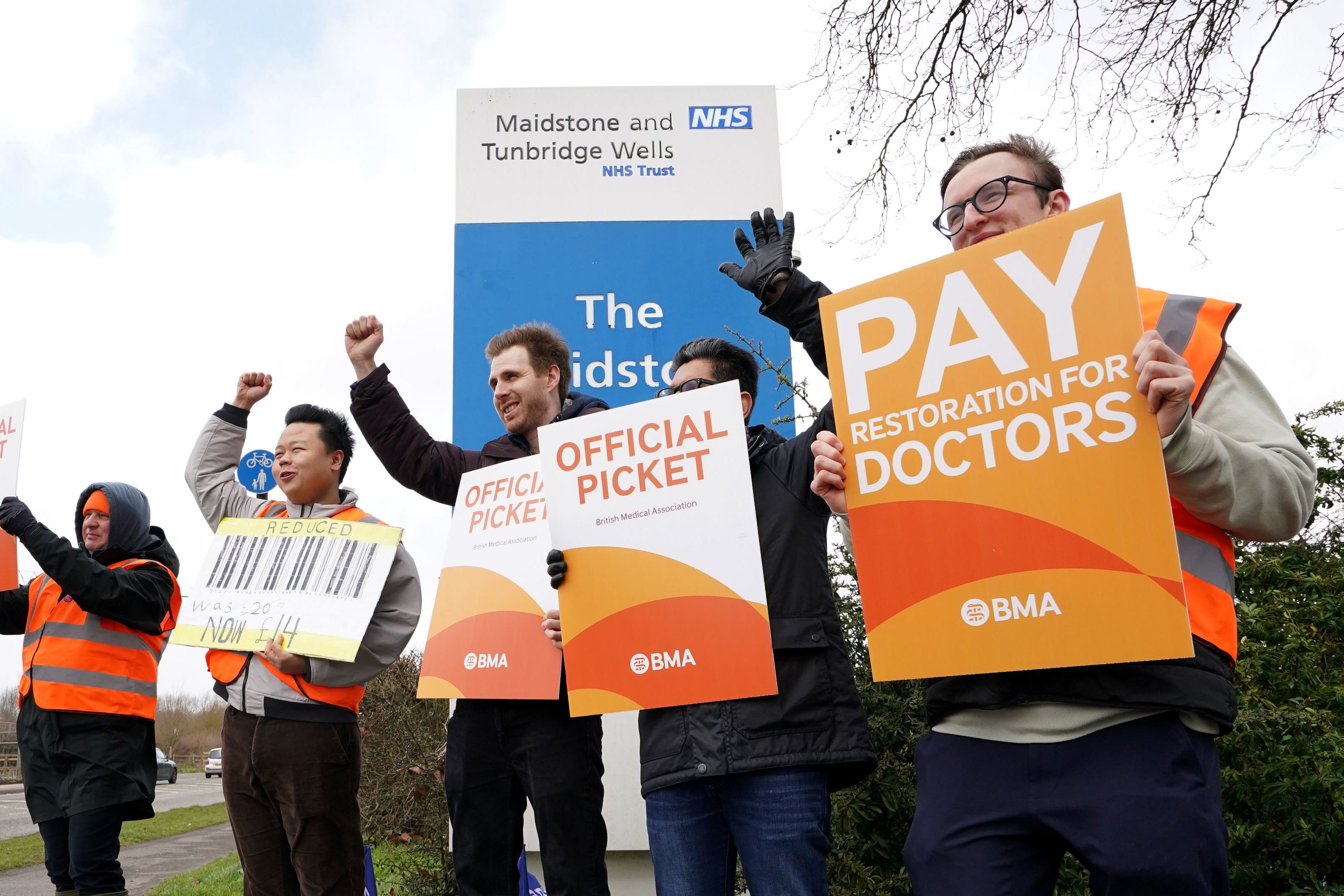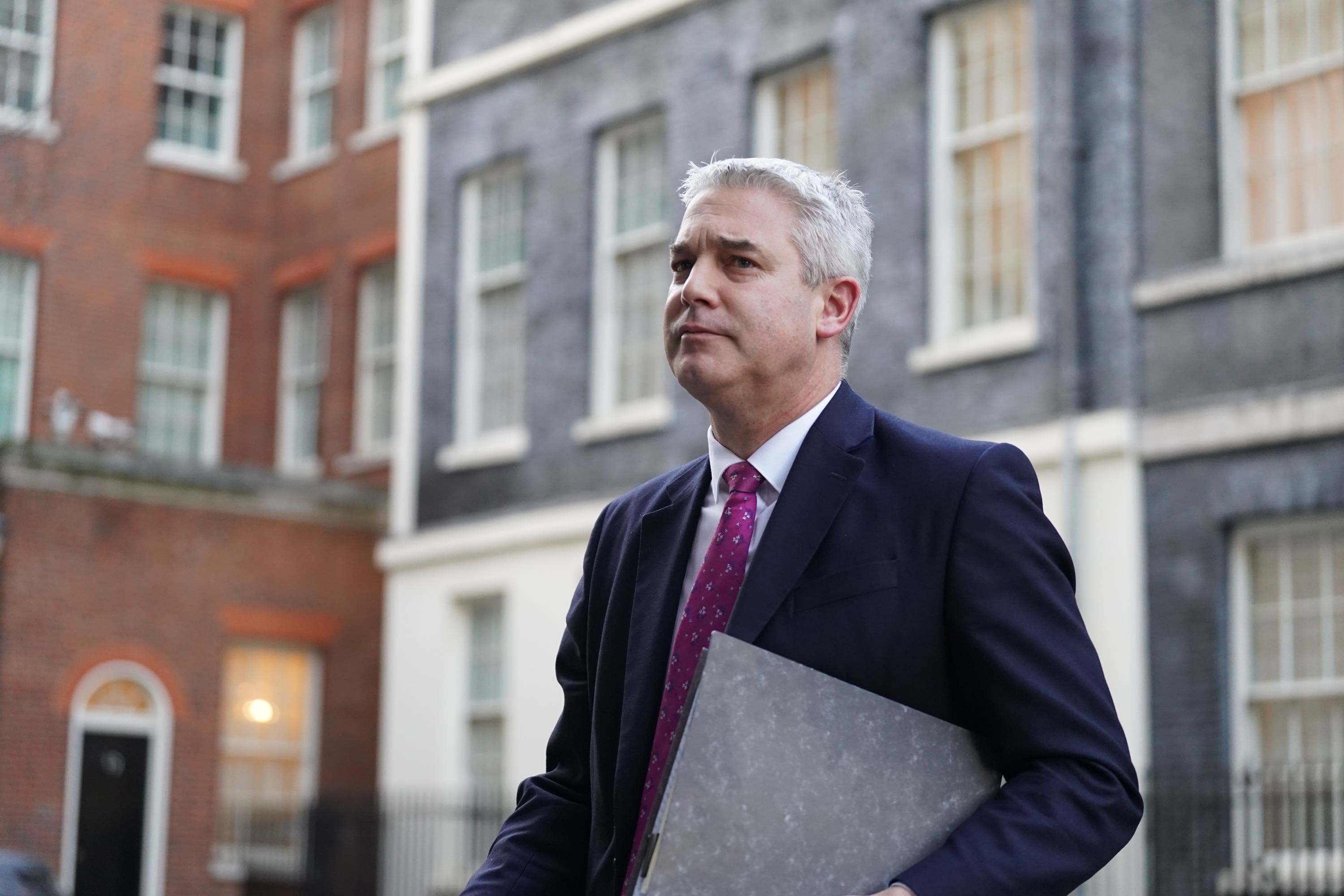Why are junior doctors striking?
Health secretary Steve Barclay says pay demands ‘unrealistic’ and attacks union’s ‘militant stance’
Junior doctors are about to embark on a four-day strike that is expected to put an immense strain on Britain’s ailing health service, with Sir Stephen Powis, national medical director for NHS England, predicting it will be “the most disruptive industrial action in NHS history”.
The strike will see around 50,000 junior doctors take to picket lines across the country and will commence at 6.59am on the morning of Tuesday 11 April – as the country returns to work following the Easter bank holiday weekend – and continues through Wednesday, Thursday and Friday.
The junior doctors taking part – who constitute around half of all NHS doctors, according to the health service – are demanding a 35 per cent increase in their wages to correct what they say has been almost 14 years of below-inflation pay rises.
The British Medical Association (BMA), which is representing the doctors, estimates that, between 2009 and 2022, junior doctors in England experienced a 26 per cent pay cut in real terms, hence the extent of the demand.
After the last round of strikes by junior doctors in 2016, basic pay for the sector (depending on seniority) ranged from £29,384 to £58,398 – considerably less than those in equivalent roles are paid in Canada, to give one example.
As a result of mid-April’s looming demonstrations, up to 250,000 appointments and operations could now be postponed, according to Dr Layla McCay, director of policy at the NHS Confederation, with some hospitals facing nearly 100 hours with only half of their usual medical workforce in post.
In a statement, NHS England announced that staff still in place will be asked to prioritise emergency and urgent care over some routine appointments and procedures to ensure those in life-threatening situations still receive safe care.
The body added that appointments and operations will be cancelled only “where unavoidable” and that patients will be offered alternative dates as soon as possible.

Professor Sir Stephen said of the imminent chaos on Monday: “The NHS has been preparing extensively for the next set of strikes but managing additional pressure doesn’t get easier as time goes by – it gets much more difficult, not only due to the sheer number of appointments that need to be rescheduled, but also that they can take time to rearrange with multiple teams involved.
“This is set to be the most disruptive industrial action in NHS history, and the strikes tomorrow will bring immense pressures, coming on the back of a challenged extended bank holiday weekend for staff and services.
“Emergency, urgent and critical care will be prioritised but some patients will unfortunately have had their appointments postponed – if you haven’t, please do continue to come forward.”
For his part, health secretary Steve Barclay attacked the BMA over the weekend, using an op-ed in The Sunday Telegraph to accuse the union of adopting a “militant stance” in negotiations and making “unrealistic” demands.
Mr Barclay said he “valued the important work these doctors do every day” but that their pay demands were “widely out of step with pay settlements in other parts of the public sector at a time of considerable economic pressure on our country”.
“Unfortunately, the decision by BMA junior doctors’ leaders to maintain an unrealistic position meant we were unable to make progress with talks,” he said.

“It seems they are intent on maintaining a militant stance rather than working with the government and NHS management to meet the best interests of their members and of patients.”
He continued: “A salary hike of this size would see some junior doctors receiving more than an extra £20,000 a year.
“I recognise their hard work and dedication. But it is deeply disappointing that this industrial action has been timed by the British Medical Association Junior Doctors Committee to cause maximum disruption to both patients and other NHS staff.”
Offering a rebuttal on BBC One’s Breakfast show on Sunday morning, Dr Mike Greenhalgh, deputy co-chair of the BMA’s Junior Doctors Committee, said: “It’s hard to negotiate when only one side is doing it and we’re not getting anything back from the government on that front.
“We’re happy to meet at any time. We would still meet him over the bank holiday weekend before the industrial action next week. And if he was to bring a credible offer to us, it could still, even at this late stage, avert action.”
Assuming the strikes go ahead as planned, the NHS has said that the public must still access the care they need in the usual way, but should only dial 999 or visit hospital accident and emergency departments in cases of life-threatening emergencies and should use NHS 111 online and other services for non-urgent health needs whenever possible.
Join our commenting forum
Join thought-provoking conversations, follow other Independent readers and see their replies
Comments


Bookmark popover
Removed from bookmarks